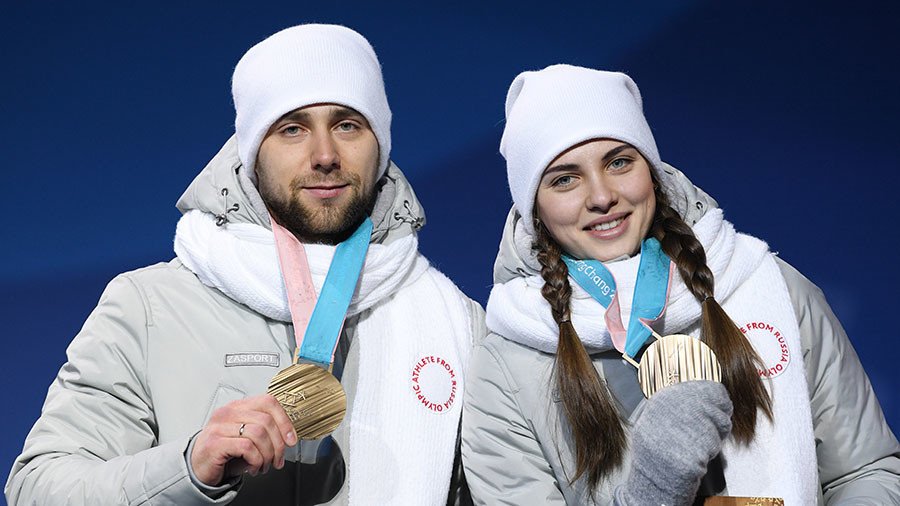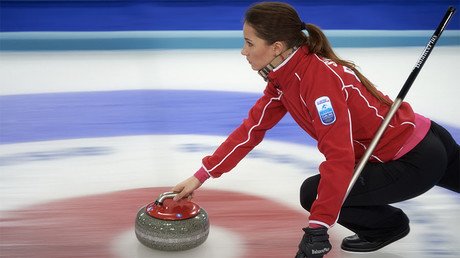Russian curler Krushelnitsky’s B sample tests positive for meldonium – ROC

The doping violation committed by Russian curler Alexander Krushelnitsky has been confirmed by the Russian Olympic Committee website, which announced on Tuesday that his B sample revealed the presence of a banned substance.
Krushelnitsky and his wife Anastasia Bryzgalova, who secured Russia’s first ever Olympic medal in curling, last week, are now set to be stripped of the bronzes they won in the mixed doubles.
READ MORE: Slovenian ice hockey player expelled from PyeongChang after positive doping test
Krushelnitsky’s A sample tested positive for meldonium on Sunday. The information on the B sample hasn't been officially confirmed by the International Olympic Committee (IOC) or the Court of Arbitration for Sport (CAS). However, a statement appeared on the Russian Olympic Committee website addressing the issue on behalf of the Olympic Athletes from Russia (OAR) delegation in PyeongChang.
“We express our sincere regret over this incident,” the statement reads.
“Along with this, the circumstances of the incident do not now answer the questions of how and when meldonium got into the athlete’s body.
“It is well known that the effect of meldonium is achieved by its regular usage, and metabolites are fixed in the human body about nine months after the end of the drug’s intake. The concentration of meldonium found in the sample indicates a single use of the drug, which is not used in medical practice, is absolutely meaningless from the point of view of achieving any therapeutic effect on the human body.
“The test taken from Alexander Krushelnitsky before the start of the Olympic Games, on January 22 – as well as all the previous ones – was negative. Thus, the fact of conscious or systematic use of a prohibited substance is not confirmed.
“In this regard, the Russian Olympic Committee is initiating a comprehensive investigation of the circumstances of the incident, which will continue, including within the criminal law of the Russian Federation, to establish the details of what happened.”
The scandal could seriously affect the Russian Olympic Committee’s (ROC) status, its reinstatement before the end of the Winter Games being compromised by the doping allegations. The prospect of athletes marching under the Russian flag at the closing ceremony is also in jeopardy.
Meldonium, a drug used to treat certain heart ailments, was banned in 2016 by the World Anti-Doping Agency (WADA), which declared that the medicine could be used for performance-enhancing purposes.
With hundreds of positive tests in the months following the ban, the world anti-doping watchdog has revised its policy regarding the drug, admitting that it can take up to six months for meldonium to completely leave the body.
More than 15 Russian athletes, including Olympic champion figure skater Ekaterina Bobrova and world champion swimmer Yulia Efimova, have tested positive for meldonium since the ban was introduced by the WADA. All of them were cleared of doping charges after they proved they had taken the drug before it was prohibited.
Since Krushelnitsky tested clean as recently as January 22, Russian Curling Federation President Dmitry Svishchev noted on Monday to the Associated Press that the curler’s food or drink could have been spiked with meldonium.
“It can’t happen at the Olympic Village because everyone eats the same canteen food,” Svishchev said. “There’s a possibility of it being something within the team, that something happened during training camp, or as a political means to achieve some goal.”













